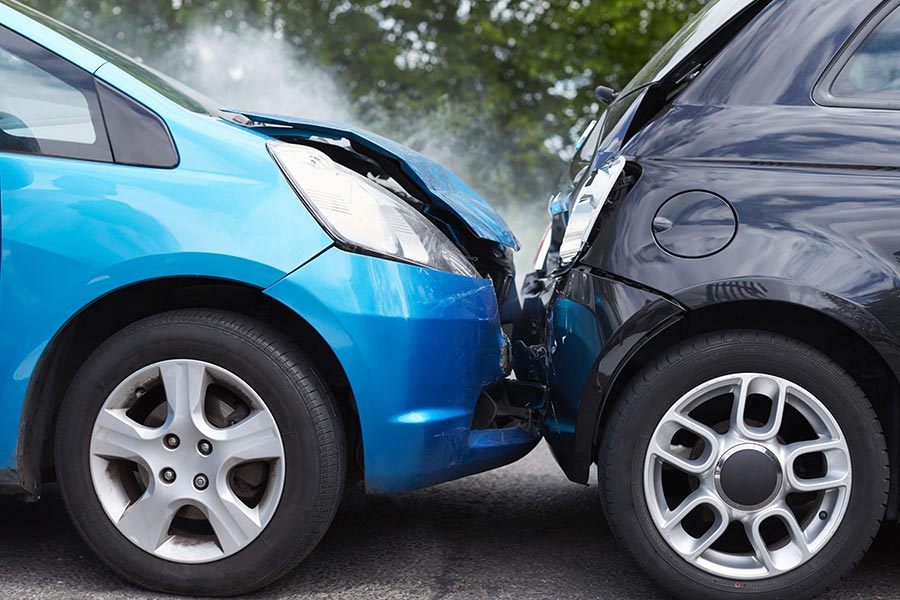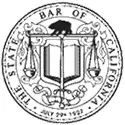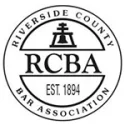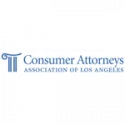An auto accident is a high-stress situation that often leaves people disoriented as to what to do. The ensuing medical and legal procedures can be additionally confusing. If you’ve been hurt in a crash, the moments and days following the accident are a crucial period for seeking compensation. Here’s a primer on what to do after a car collision, how to get your medical bills paid, and accident conditions in California.
What should I do after a car accident in CA?
Take these steps immediately after a car crash:

- Call 911 and get medical attention. Even if you think your injuries are minor, have a medical professional examine them. Immediate medical attention may be crucial to your health and can also support your compensation claim.
- Document the scene. While waiting for responders, take photos of the accident scene if you can. Capture the damage to your car or surroundings, as well as your visible injuries. Try to record other relevant details such as the time, day, street location of the crash, weather conditions, and any traffic hazard present.
From this point onward, you’ll need to save all documents relevant to the accident, such as hospital bills, emergency room bills, medication receipts, and transportation fees. - Request the other driver’s details. If another driver is involved, write down their name, contact details, and insurance information.
- Talk to witnesses. See if there are people who may have seen the crash. Politely request their name and contact details.
- Report to the authorities. It is legally required in California to report a car accident that resulted in injury, death, or property damage above $1,000. You must report to the police or highway patrol within 24 hours and to the Department of Motor Vehicles (DMV) within 10 days.
- Call an injury attorney. If you were injured in the accident, it’s best to have a good accident lawyer on your side as soon as possible. Your lawyer can protect your rights when insurance representatives start calling you, which happens soon after the accident. Don’t give statements or agree to offers until you’ve consulted your attorney.
Who pays for my medical bills from a CA car crash?
When it comes to auto insurance, California is a “fault-based state” or “fault state,” which means the party at fault in the accident must pay for the injuries and damage they caused. If you were the one injured, you’ll need to file a claim against the at-fault party’s insurance company so that their liability coverage could ideally pay for your expenses.
Unfortunately, not every injury case gets fully covered by liability insurance. California drivers are required to carry a minimum per-person liability coverage of $15,000, but injury costs can easily exceed that.
Further, insurance companies typically use strategies to minimize claims, resulting in reduced payouts for injured individuals. In many cases, insurers outright reject injury claims using various defenses to deny their client’s liability.
You’ll want to consult with a good accident lawyer to find other legal remedies for your accident losses. Other options may include your own personal injury protection (PIP) or Med Pay coverage (which is an optional coverage in CA), your health insurance, or suing the at-fault party.
What if the other driver has no insurance?
If the at-fault person has inadequate insurance or no insurance at all — or if the person cannot be found — one way to get compensated is to claim from your own uninsured/underinsured motorist coverage (UM/UIM).
However, UM/UIM is an optional policy in California. If you don’t have this policy, talk to your attorney to explore other options to get compensated.
How do I file an insurance claim in a California car accident?
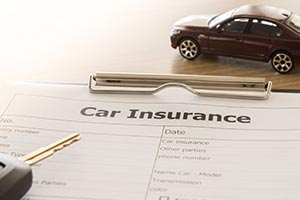
A claim against the other party’s insurance is called a third-party claim. You must first notify your own insurer about the accident, regardless of who was at fault. The other driver must also do the same. Their insurance company will likely contact you soon afterward, but if this doesn’t happen, you may directly contact their insurer yourself.
When speaking with the insurance adjuster, stick to the facts, avoid assigning blame or admitting fault. The agent may try to undermine your claim by saying you contributed to the accident or that you had a pre-existing injury. They may then follow up with a low-ball settlement offer. Never accept any settlement offer without consulting your attorney first.
Should I file a lawsuit for my accident injury?
Some accident claimants opt to stick with their insurance claim without suing the other party for fear that a lawsuit might be costly and time-consuming. In reality, the vast majority of personal injury lawsuits don’t go to trial. Some 95 to 96 percent of personal injury lawsuits are settled before going to court.
There are some advantages to filing suit that may help you obtain a favorable settlement out-of-court. Talk to your injury lawyer when deciding whether to pursue legal action.
How much could I receive for an accident injury in CA?
Accident claimants often ask: What is the average accident injury settlement amount? The answer is that there is no true “average” settlement because cases vary widely. The amount depends on the unique factors of each case, such as the severity of the injury, any long-term care needed, any lost potential to earn, the circumstances that led to the accident, and more.
If you pursue a personal injury lawsuit, you may be entitled to two kinds of damages: economic and non-economic. Economic damages have a concrete dollar amount, such as medical bills and lost wages, while non-economic damages include pain and suffering, mental/emotional distress, and disfigurement.
Your personal injury attorney can help you determine the full value of your case and maximize the compensation you could receive.
What if I was partly at fault for the accident?
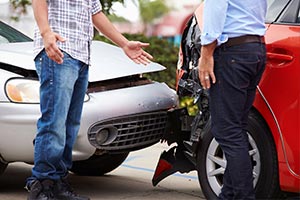
California follows the legal doctrine of “pure comparative negligence,” which means that fault in a car accident could be shared by all parties who contributed to it. It further means that even injured victims could be found to be partially at fault.
If it’s found that you were partially responsible for the car accident, your compensation could be reduced according to your percentage of fault. For example, if the court finds that you were 20 percent at fault because you were over the speed limit leading up to the collision, your compensation could be reduced by 20 percent.
Insurers frequently use the comparative negligence rule to minimize the amount they have to pay. This is why you must never admit fault or even apologize while speaking to an insurance agent. Have a lawyer guide you in navigating the claims process so you don’t make costly mistakes.
How long does it take to get an injury settlement in CA?
From the day you and your lawyer send a demand letter to the insurance company to the day you receive your settlement check, the claim timeline typically takes a few months.
However, several factors could affect the length of this process. For instance, settlement negotiations may take more time if the at-fault party strongly disputes your injury claim or denies their responsibility. If insurance talks break down, the case may proceed to trial, which will likely be significantly longer (a year or more).
You’ll want to be represented by a competent lawyer experienced in establishing the other party’s liability, asserting the compensation you deserve, and countering the tactics of insurance companies.
What is the deadline for filing a personal injury claim in CA?
Under the California Statute of Limitations, you generally have two years to file a personal injury lawsuit, starting on the date you sustained your injury. If you miss this period for filing suit, you’ll lose the right to make a claim.
There are a few exceptions to this time limit:
- If your injury was not discoverable right away, the two-year time period starts on the date you discovered the injury, not on the date of the accident.
- If you were a minor at the time of the accident, your time period to sue is one year from the day you turn 18. However, your parents or guardian could file a claim on your behalf before you reach legal age.
- If you wish to sue a government entity (for example, a public works agency that negligently failed to keep the road safe), you must file an administrative claim with this agency within six months of the accident. If they deny your claim within 45 days, you’ll have only six months to file a lawsuit against them. If you don’t get a denial, you’ll have the regular two-year period to sue.
While two years seem to be ample time to take legal action, some claimants miss their window due to numerous delays in the insurance process. It’s best to discuss your options with a lawyer early to avoid losing your right to a legal procedure.
My injury symptoms are delayed or confusing. Can I claim compensation?
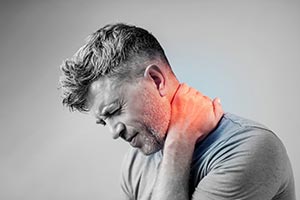
In some cases, injuries from an accident aren’t immediately noticeable. Some take days or weeks to manifest, and others don’t get detected until diagnosed by a doctor. Common injuries with delayed or hidden symptoms include concussions and other traumatic brain injuries (TBI), whiplash, internal organ injuries, and post-traumatic stress disorder (PTSD).
Such injuries are still compensable, though you might find it more challenging to prove that your injury is real and that it came from the car accident. Insurance companies take advantage of delayed or vague symptoms to discredit your injury claim.
You’ll need a highly experienced injury lawyer who works with medical experts to establish the extent of your injury. At Zucker Personal Injury & Accident Lawyers, APC, our extensive background in law has allowed us to build a network of physicians, specialists, and accident experts who can significantly bolster your compensation claim.
What if I was injured as a passenger in California?
The same personal injury law applies if you were injured as a passenger, pedestrian, or driver in a car crash: the at-fault driver is still liable to pay for your damages.
We understand that the situation may be trickier if the at-fault driver was your friend or relative. You may be reluctant to hold them responsible for your bills, even though you need the compensation. In this scenario, remember that your claim would be made against their insurance company, not against them directly. Our lawyers at Zucker Personal Injury & Accident Lawyers, APC can help you navigate the claims process skillfully, preventing unnecessary stress on you or your friend.
I was injured as an Uber/Lyft passenger. Who pays for my bills?
Under California law, the person who caused the accident is liable to pay for your injuries. If that person is your Lyft/Uber driver, you may generally file a claim with the rideshare company’s liability insurance policy. However, one major condition is that the accident should have happened within a covered “period” of rideshare driving.
These are the driving periods that affect the insurance coverage of Uber, Lyft, and other rideshare systems:
- Period 0 – The Uber/Lyft driver is not logged on to the app. The company’s liability insurance will not cover collisions during this period.
- Period 1 – The Lyft/Uber driver is logged on to the app but is still searching for passengers. As required by California law, Uber and Lyft each have liability insurance that applies during this period. The policy includes $50,000 for each injured person per accident and $100,000 injury total per accident.
- Period 2 – This period is when the Uber/Lyft driver has accepted a passenger on the app and is on their way to pick them up. California requires the rideshare company to carry $1 million liability insurance for this period.
- Period 3 – The Lyft/Uber vehicle has a passenger inside. The $1 million liability policy also applies.
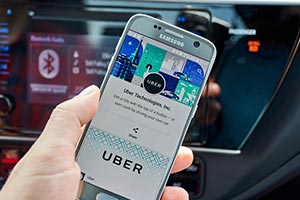
Complications arise if you get injured during a no-coverage period. If the rideshare company’s insurance doesn’t apply, the Lyft/Uber driver will have to rely on his personal auto insurance to pay you. The problem is that some personal insurance policies get voided if the driver uses their vehicle for commercial purposes (such as ridesharing). You may find yourself in a limbo of invalid liability coverages.
If you do have the opportunity to claim from the rideshare company’s insurance, you can expect to face highly trained insurance representatives who may delay, deny, or decrease your claim.
Contact a personal injury attorney who has proven experience in handling this area of the law.
My loved one died in a California car accident. Can I claim compensation?
Yes, California law allows you to file a wrongful death suit if you are the spouse, child, or dependent of the deceased. A wrongful death claim is meant to compensate you for losses related to your loved one’s accident, such as:
- Funeral and burial expenses
- Loss of spousal relations
- Loss of companionship
- Loss of financial support or benefits from the deceased
- Loss of guidance and care
- Loss of household services from the deceased
California’s statute of limitations (time limit) for a wrongful death lawsuit is two years from the date of the death. Get in touch with a wrongful death attorney to help you pursue a successful wrongful death claim.
California car accident statistics: How common are car accidents in CA?
Thousands of car crashes occur each year in California. Data from the California Statewide Integrated Traffic Records System (SWITRS) show that 146,626 collisions occurred statewide in 2020 alone. That’s about 401 crashes daily. Of those accidents in 2020, some 3,438 resulted in fatalities.
These counties topped the state in terms of injurious and fatal vehicle accidents in 2020:
- Los Angeles County – 45,194 crashes
- San Diego County – 10,943 crashes
- Orange County – 8,909 crashes
- San Bernardino County – 8,794 crashes
- Riverside County – 8,543 crashes
Among California cities, Los Angeles had by far the highest number of collisions last year at 21,821. This was followed by San Diego with 4,435 crashes and San Francisco with 2,758.
Here in Temecula, where Zucker Personal Injury & Accident Lawyers, APC is based, we have lower accident numbers than bigger metropolitan cities. According to the same data set, Temecula had only 387 car accidents with injuries in 2020. However, each of those accidents means pain, financial burdens, and emotional distress for affected individuals and families.
Most Dangerous Roads in California and Riverside County
Certain highways and intersections become hotspots for accidents due to various factors. One 2018 study examined three years’ data from the National Highway Traffic Safety Administration (NHTSA) and found that these are the deadliest highways in California:
- Interstate 5, also known as the 5 Freeway – 192 fatalities
- US 101 or the 101 Freeway – 139 fatalities
- State Route 99 or the 99 Freeway – 110 fatalities.
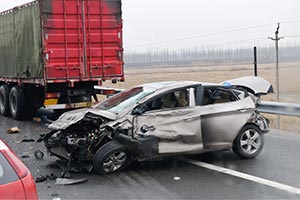
The California stretch of I-5 has recently been named the most dangerous road in the U.S. overall. The survey also found that California’s SR-91 had the most fatal collisions that involved alcohol.
More locally, Riverside County has its own share of accident-prone streets. Another survey revealed that I-215, also known as the Temecula Valley Freeway, was the 10th most dangerous highway in the U.S. in 2013, with 2.1 accidents per 10 miles.
Riverside County intersections that are locally known for accidents include:
- Ynez Road and Winchester Road (Temecula)
- Gilman Springs and Bridge Street (Moreno Valley)
- Arlington Avenue and Van Buren Boulevard (Riverside)
- Magnolia Avenue and Tyler Street (Riverside)
These intersections are noted to have factors that increase accident risks, such as heavy traffic, difficult turns, lack of traffic lights or visible traffic signs, and lack of pedestrian crosswalks.
It doesn’t help that Californians are notorious for dangerous driving. California drivers have been found to be the most aggressive motorists in the nation, often engaging in risky road behaviors such as speeding, tailgating, and brake checking.
If you or someone you love has been hurt due to someone else’s negligent driving, reach out to a personal injury attorney right away.
What are the common causes of car accidents?
Factors behind auto collisions may have something to do with the driver, the road conditions, and sometimes the vehicle itself. Be aware of these commonly cited causes of car crashes:
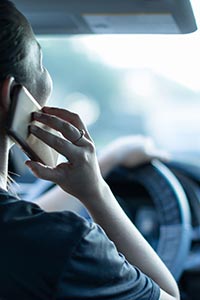
- Distracted driving
- Drunk driving/Driving under the influence
- Speeding
- Improper turning
- Unsafe lane change
- Tailgating
- Running red lights
- Dangerous road conditions (icy or slippery roads, poor visibility, and the like)
- Road hazards from construction sites (debris, road obstructions, etc.)
- Vehicle defects (such as malfunctioning brakes and blown tires)
Call a Temecula Personal Injury Lawyer Today
Don’t delay your consultation with an attorney, because time is essential to preserve evidence and build a solid personal injury case. Contact Zucker Personal Injury & Accident Lawyers, APC – highly experienced lawyers in California injury law and insurance claims. Consult with us for free, call (951) 699-2100 or send us a message through our online form.

